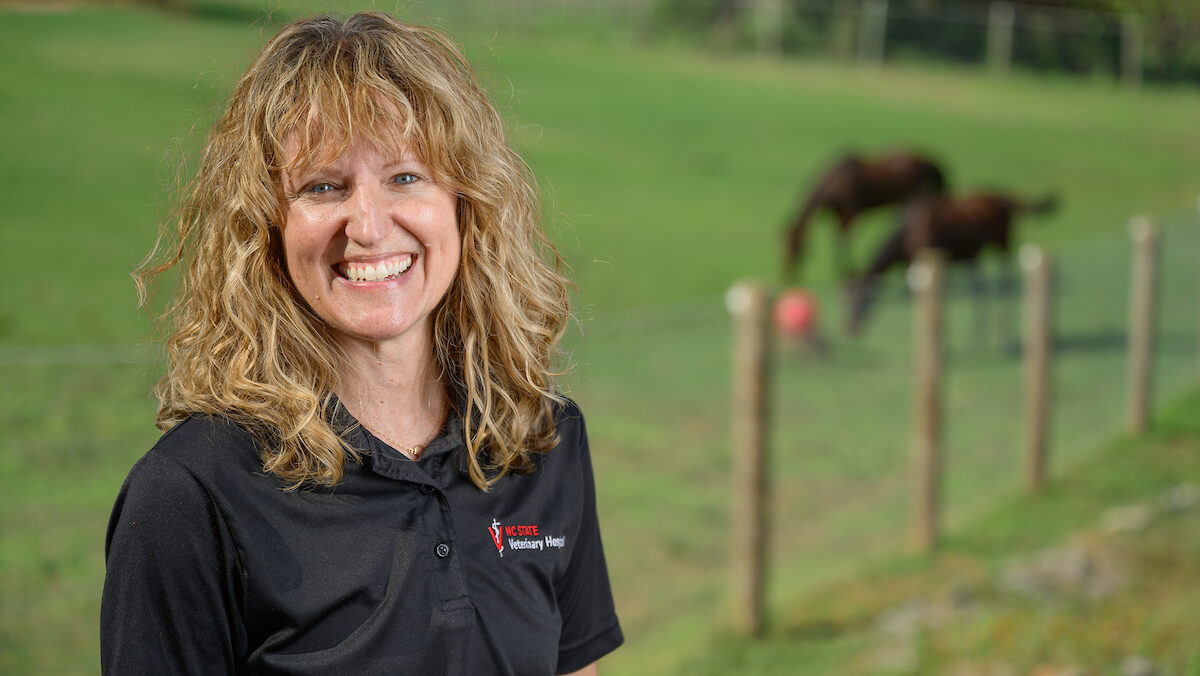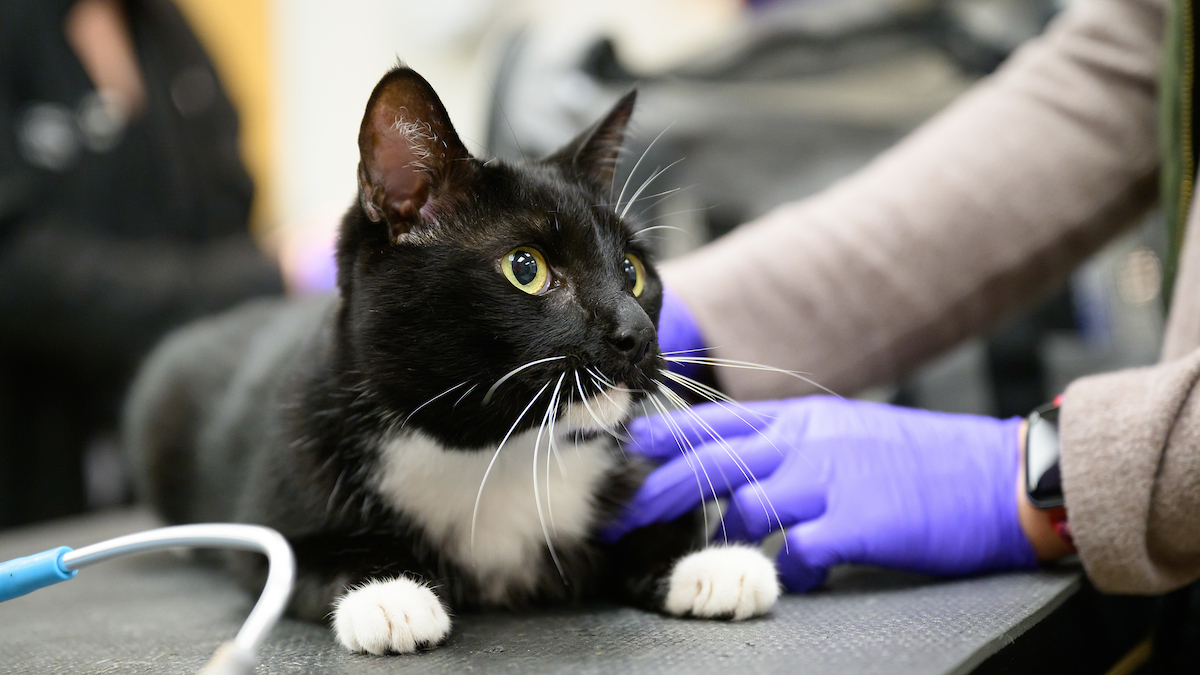With Genetic Counseling, CVM Takes Deeper Dives into Dog DNA

At-home DNA tests can uncover that your mixed-breed rescue is 1/8th Jack Russell terrier. A saliva sample sent through the mail can estimate how big a dog may get, if they have drug sensitivities or detail their chance of developing a heart condition.
The tests can be revelatory. They can also just be the beginning.
A new program at the NC State College of Veterinary Medicine provides a deeper look into pet DNA tests through one simple online inquiry: “What question would you like answered?”
Since launching less than two years ago, the CVM’s genetic counseling service has received a steady stream of questions from pet owners, breeders and veterinarians looking for a more refined look into genetic testing results.
Some ask general questions about a type of genetic test — there are thousands of different types for companion animals — or if a certain one
would be beneficial at all. Veterinarians can get detailed information on which tests may be useful to get to the bottom of a client’s case or ask for a rundown on particular tests have shown in the past.
Researchers are able to gather genetic information that starts filling in the necessary blueprints for disease prevention.
It’s fast, free and illuminating.
“Genetics is not the answer to everything, but it gives us a chance to be proactive,” said Kate Meurs, the CVM’s associate dean for research and graduate studies who launched the service. “Say we discover a genetic mutation in a kitten that’s 10 weeks old that says that kitten is at high risk for developing heart disease around 2 years of age.
“We can change diet or pinpoint drug therapies. You may not be able to prevent the disease, but you can impact how severe it will get.”
It offers a wealth of information, but the genetic counseling service is simple to use. Clients fill out a short form on a website, click a type of species and then describe what they want to know. The questions are fielded by Meurs and others at the CVM, and answers are emailed back on topics ranging from complex families of diseases to the basics of genetics.

For example, owners will write that they paid to run a test on pet liver toxicity, ask what the results mean and what, if anything, they should do next. Genetic testing, Meurs said, does not often provide black-and-white results, especially when it comes to disease.
They are risk predictors, and the genetic counseling service makes that clear. Dissecting genetic information for a pet owner can be beneficial, but it’s an evolving science.
There are clear benefits, though. Caryl Handelman, a small animal veterinarian with a house call practice based on Long Island, N.Y., recently used the service to get breeding recommendations for a client and to find out about the usefulness of different types of genetic health screenings. She said using the CVM’s service is invaluable.
“With the explosion of available genetic tests, it is awesome to have an easily accessible cadre of specialists whom I can trust for help in choosing tests and understanding how to utilize results for the best health of my clients,” said Handelman.
Part of the CVM’s Veterinary Genetics Laboratory, the counseling is also a teaching tool within the college’s theriogenology service, the veterinary medicine branch focused on reproduction. Kate Withowski, a CVM theriogenology resident funded by the American Kennel Club and the AKC’s Canine Health Foundation, is a member of the genetic counseling service team.
“I have learned how to temper the ambiguity surrounding a lot of health issues and concerns of clients by giving accurate information that they can use to make informed decisions,” said Withowski. “By making information as accessible as possible, we can directly affect the health of dogs for the better.”
Direct-to-client veterinary medicine genetic counseling is a service trend reflecting a sharp rise in the past 15 years of at-home testing kits, the majority of which are for dogs. It also falls in line with advances in the understanding and prevention of genetic diseases in veterinary medicine.
“Genetics is not the answer to everything, but it gives us a chance to be proactive,” said Kate Meurs, CVM associate dean for research and graduate studies.
Cheaper and more frequent genetic testing has led to a higher number of discoveries disease-causing mutations in dogs, cats, horses and other pets.
The information resulting from counseling sessions helps veterinarians bridge the gap between genetic disease research and concrete clinical treatments, said Withowski. It’s information that has consequences for human health. Knowing the genetics behind how a dog develops a certain type of cancer can broaden our understanding of how humans develop the same disease — and how we can effectively treat it.
Meurs knows the power of genetics in veterinary medicine firsthand. She holds a Ph.D. in genetics and has long focused her research on the genetics behind cardiovascular disease, particularly cardiomyopathy, a condition that makes it difficult for the heart to pump blood and often results in heart failure.
She was part of a research team that identified a gene associated with a form of cardiomyopathy in Doberman pinschers, discovered when Meurs and her colleagues collected genetic information whole genome sequencing on a family of dogs. The information can directly lead to treatments for humans with the condition.
What’s shared during genetic counseling sessions doesn’t just reveal the present. It hints at the future.
“Many of these genetic diseases are fatal diseases. They’re painful diseases,” said Meurs. “By discovering the genetic causes, we have a real chance to reduce their prevalence and discover a way to prevent them from happening at all.”
~Jordan Bartel/NC State Veterinary Medicine


